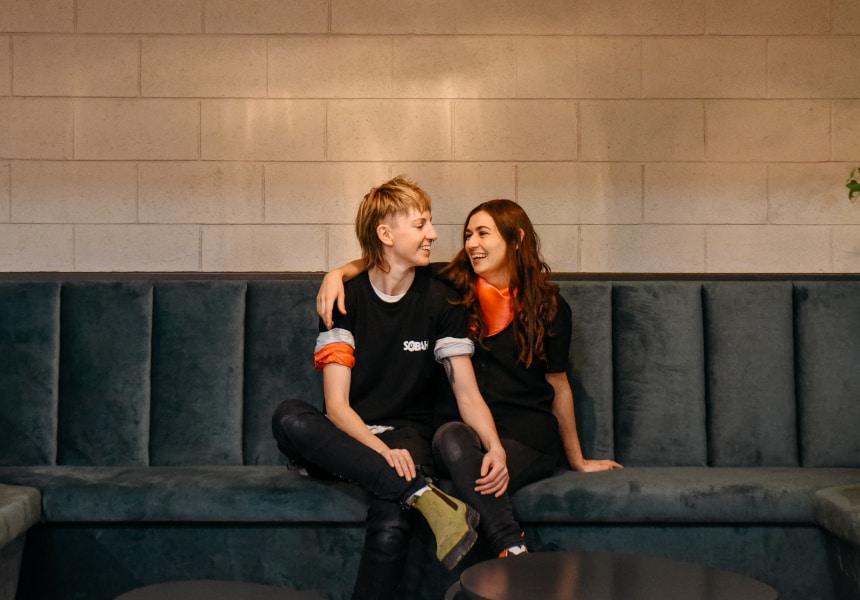
3 tips for making every business more accessible and inclusive
There are few spaces in Australia that can claim to be genuinely accessible and inclusive.
‘My Lover Cindi’ is one of the few, and it’s a true game-changer. Described as a ‘queer utopian night space’, the venue was designed with a huge focus on addressing the gaps across venues in Adelaide nightlife.
Club co-owner Rachel was recently profiled on Feros Care podcast Grow Bold with Disability, and her story is truly remarkable – from the inspiration behind the venue to just how every decision was made.
Now, Rachel says, ‘My Lover Cindi’ is full of people from all different walks of life, doing the most incredible things – dancing, laughing, watching cabaret, performing feminist poetry, enjoying drag performances and so much more.
Read on for a few key tips from Rachel and her co-owner, Kate on exactly how to ensure businesses and venues can be more accessible.
Read the room
‘My Lover Cindi’ co-owners Rachel and Kate have backgrounds in social services, academia and hospitality. The two of them were inspired to start a nightclub after a conversation in their kitchen about their friends.
“We wanted to go out and enjoy a night of partying,” Rachel explains. “We have friends who use mobility aids and we have noticed on many occasions, there’s been real issues with some of our friends being able to partake in night
life in Adelaide.”
And so the concept was born – but not without extensive research. In order to finalise key decisions about their space, the two of them conducted community research and spoke to people about what stops them going out.
As a result, every element of the night club is a response to what the community asked for. The venue avoids strobe lighting and smoke machines to allow for those with sensory issues, breathing problems or epilepsy. There is also a quiet side room for
those wanting to take a break from the noise; drinks available in mason jars with handles, for easier carrying; and having ‘priority access’ areas taped up in hot pink tape for those who need them at the high bar.
“It’s the little things that can make or break someone’s night experience, like where a hand soap dispenser should be,” Rachel adds.
Finding the right space
It can be challenging to find a venue that is accessible. Many don’t have the space for mobility aids, or they might be heritage-listed buildings without lifts.
However, for Kate and Rachel, the right venue was non-negotiable.
“We were not going to open a venue that we couldn’t invite everybody into,” Rachel says. “It informed a lot of our decision making.”
They ended up coming across a venue that met the brief and were able to make essential changes to the space, such as knocking down doorways to install more appropriate ones.
“It was really imperative to us that everyone who would access the venue would use exactly the same entrance,” Rachel explains – a decision applauded by podcast host and wheelchair user Tristram Peters.
“The last time I went to a night club, I had to go up a lift that the manager had a key to,” Tristram explains. “The manager disappeared so I was stuck for an hour waiting to get into the place. Access is so, so important.”
Rachel and Kate even launched access guides when the venue opened, with slides detailing the entrance, any slopes around the venue and toilet accessibility – to much excitement.
“Now this is how to open a bar,” one user commented, with another adding: “thank you so much for putting so much thought into this… disabled people deserve to have fun too!”
Take the time and effort to make changes
